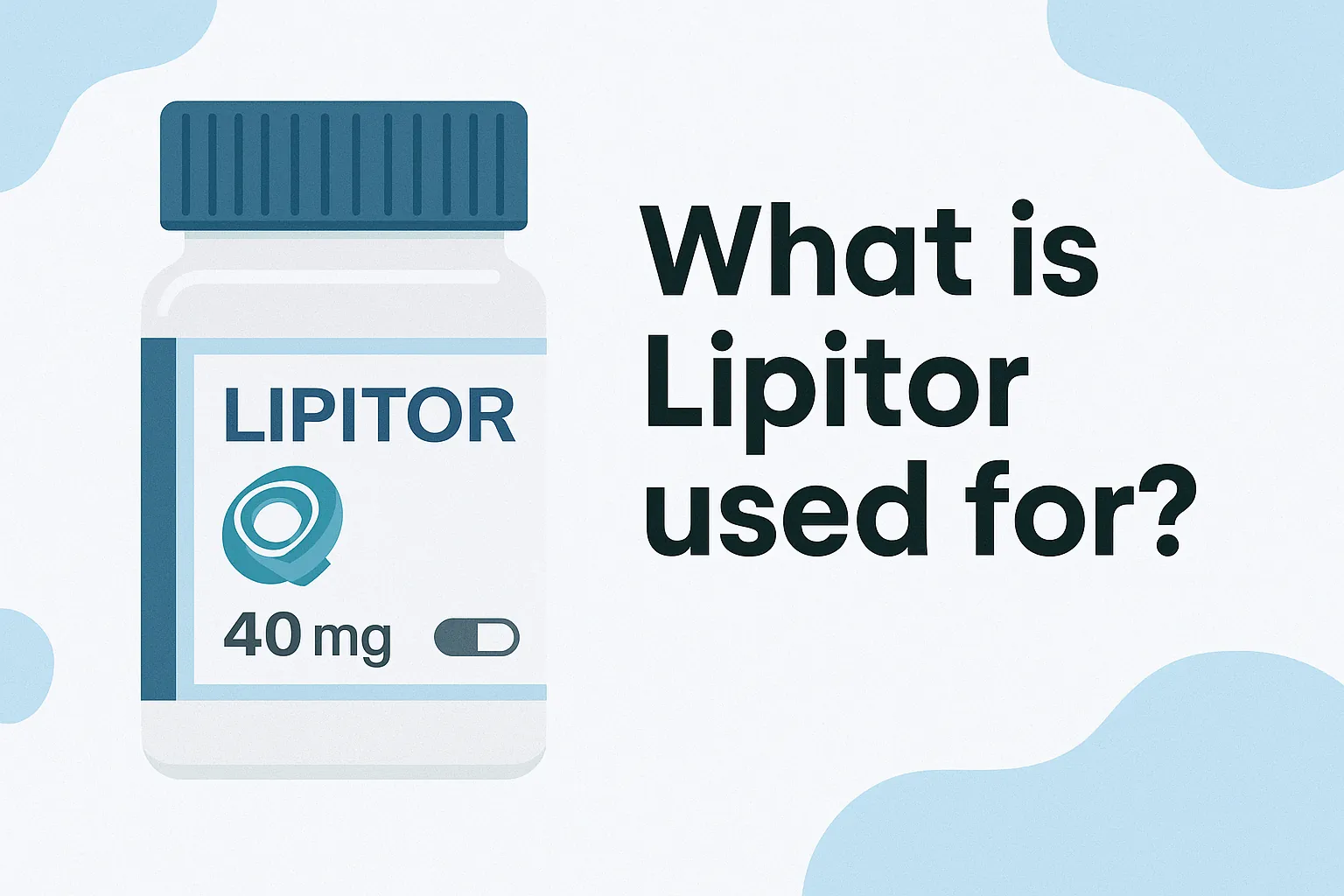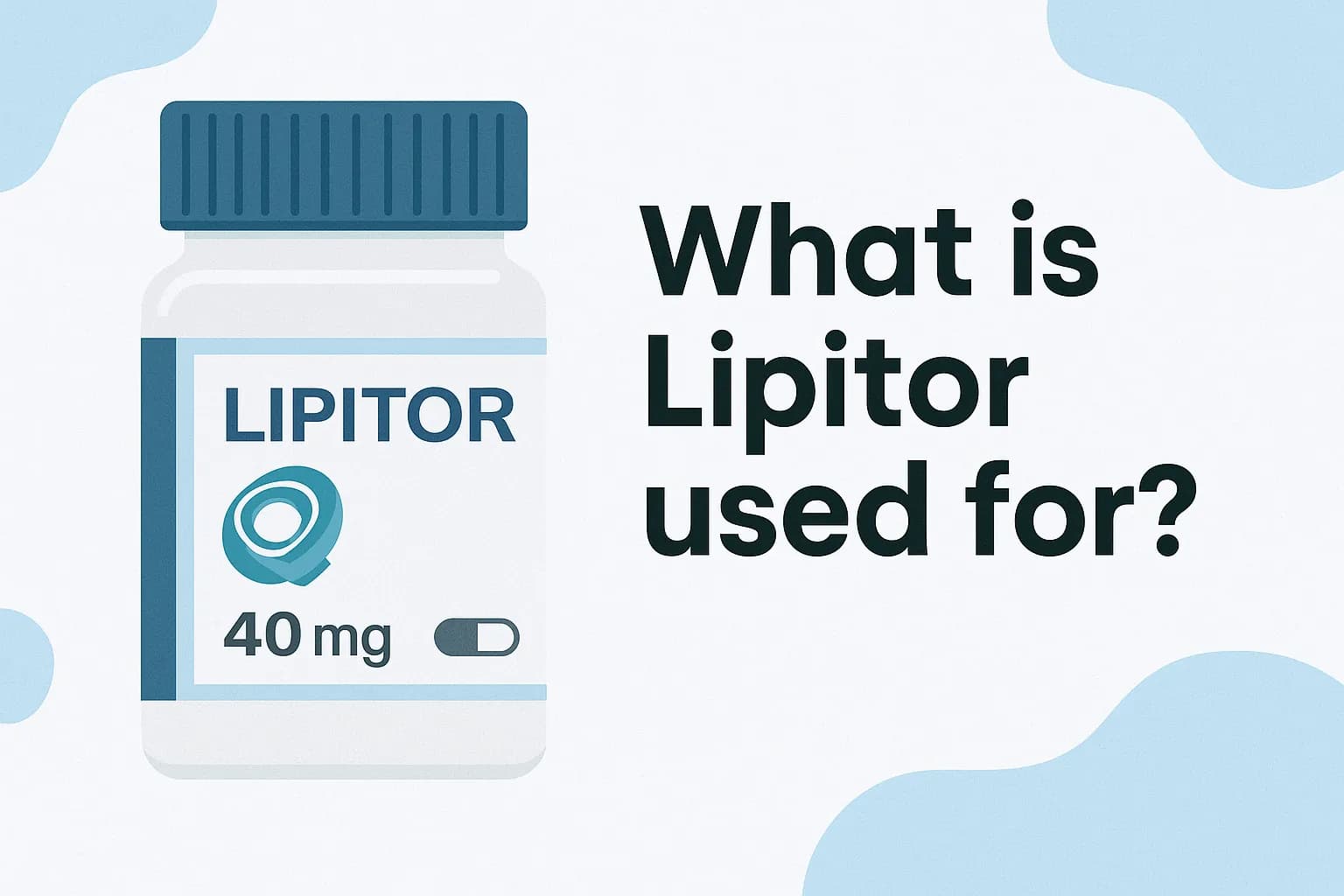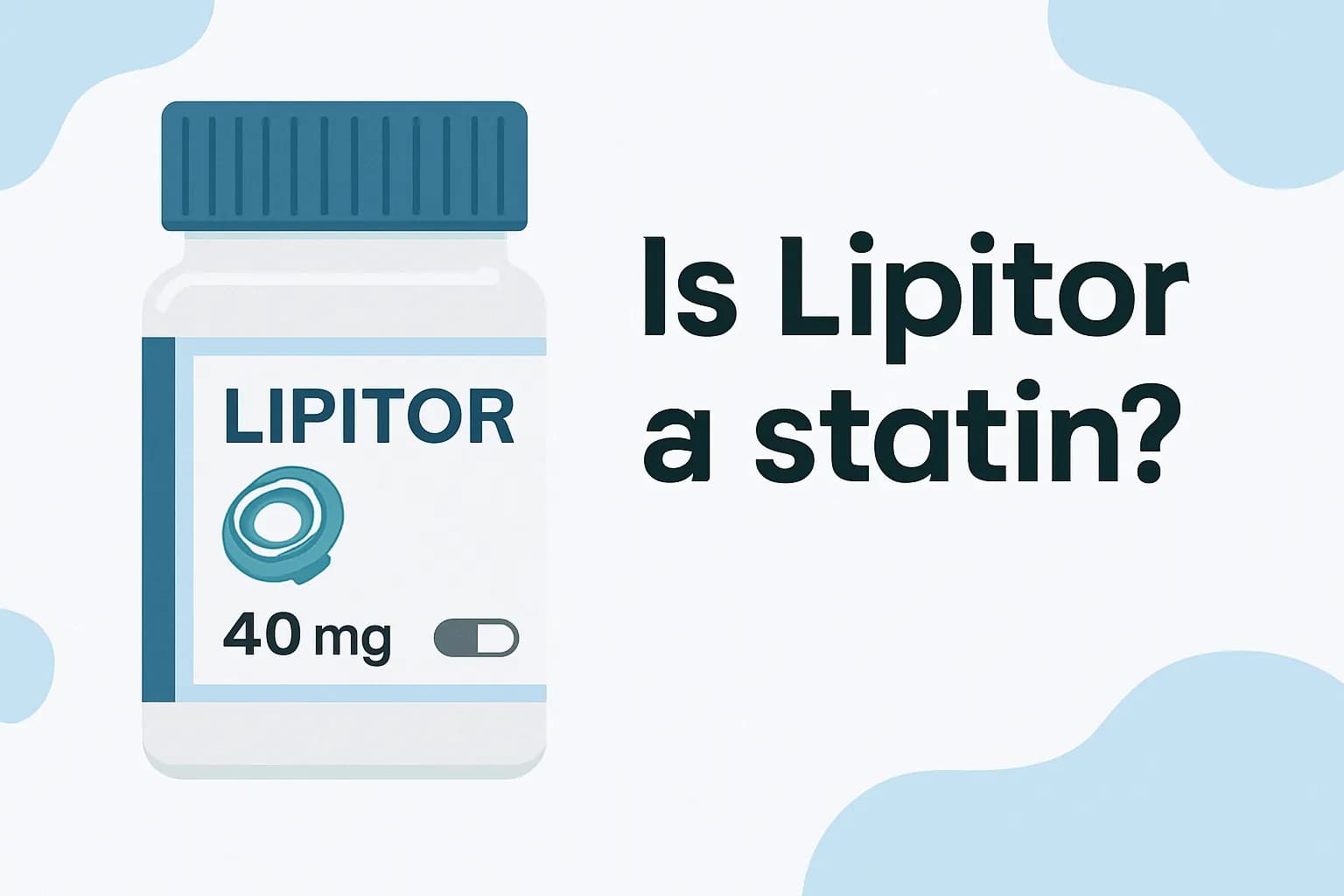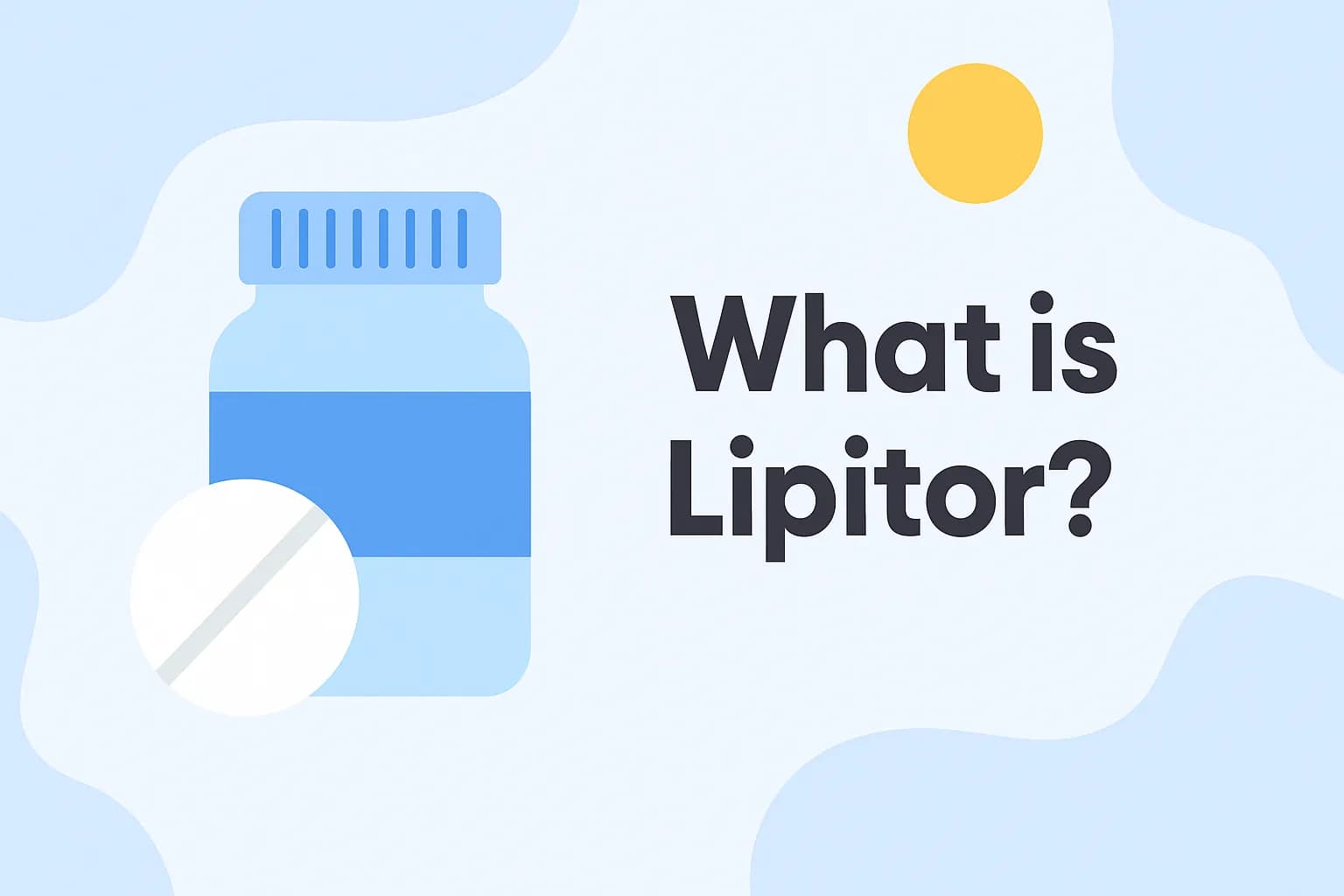What is Lipitor used for?

Lipitor (atorvastatin) is a brand-name medication that is one of the most prescribed and one of the most potent members of the statin family, which is the most widely prescribed class of drugs in the US. These medications are used to lower cholesterol levels in certain adults and children 10 years of age and older. Cholesterol (lipid) is a waxy substance found in your blood that your body needs to build healthy cells.
High levels of cholesterol, however, can lead to fatty deposits in your blood vessels. If left untreated, these deposits grow, making it hard for blood to flow through your arteries. Sometimes, those deposits can suddenly break and form clots that cause a heart attack or stroke.
There are conditions that you can inherit that cause high cholesterol, but it is more often the result of unhealthy lifestyle choices such as poor diet, smoking, lack of exercise, and drinking too much alcohol. Regular exercise, a healthy diet, weight loss, quitting smoking, and medications such as Lipitor can be used to help reduce your high cholesterol levels. Lowering your cholesterol will help reduce your risk of cardiovascular disease and complications from it, including heart attack and stroke.
Keep reading as we will go into more detail about what Lipitor is used for, its side effects, and answer some frequently asked questions.
Lipitor FAQs
Why would a doctor prescribe Lipitor?
- To reduce the risk of heart attack, stroke, chest pain, and certain types of heart surgery in adults who don’t have coronary heart disease but have other risk factors for heart disease such as diabetes or high blood pressure.
- To reduce the risk of heart attack and stroke in adults with type 2 diabetes mellitus (T2DM) who do not have coronary heart disease but have other risk factors for heart disease.
- To reduce the risk of heart attack, stroke, certain heart surgeries, hospitalization for congestive heart failure (CHF), and chest pain in adults with coronary heart disease.
- Along with diet to reduce LDL-C (bad cholesterol) in adults and children 10 years and older with heterozygous or homozygous familial hypercholesterolemia.
- Along with diet to treat adults with high triglyceride levels.
What are the most common side effects of Lipitor?
- Common cold symptoms (runny nose, sore throat)
- Joint pain
- Diarrhea
- Pain in arms and legs
- Increased risk of urinary tract infections (UTI)
Other possible side effects include:
- Indigestion
- Nausea
- Muscle pain or weakness (myopathy)
- Insomnia
- Constipation
- Memory loss, forgetfulness, confusion
What serious side effects does Lipitor have?
- Serious allergic reactions: Hives, rash, swelling of the face, lips, tongue, or throat, and shortness of breath.
- Severe muscle pain and damage: Risk of rhabdomyolysis which can lead to liver/kidney failure or death.
- Increased risk of liver problems: Get liver function tests before and during use.
- Increased blood sugar: May raise blood sugar levels, especially in those with diabetes.
- Harm to unborn and breastfed babies: Not recommended during pregnancy or breastfeeding.
These are not all possible side effects. Seek medical advice for questions or concerns and report side effects to the FDA at 1-800-FDA-1088 or www.fda.gov/medwatch.
How does Lipitor work to reduce cholesterol levels?
The active ingredient in Lipitor is atorvastatin calcium, an HMG-CoA reductase inhibitor (statin). It works by blocking the enzyme in your liver that makes cholesterol, lowering LDL (bad cholesterol), raising HDL (good cholesterol), and lowering triglycerides — reducing your risk of heart attack and stroke.
Shop Medications
What should you tell your healthcare provider before taking Lipitor?
Tell your provider if you have:
- Unexplained muscle aches
- Liver disease
- Alcohol use (more than 2 drinks/day)
- Diabetes
- Thyroid or kidney disease
- A history of stroke
- Are pregnant or breastfeeding
Are there any drug interactions with Lipitor?
Tell your healthcare provider if you take:
- Other cholesterol meds (gemfibrozil, niacin, fenofibrate)
- Colchicine
- Antibiotics or antifungals (e.g. clarithromycin, ketoconazole)
- Birth control pills
- Immunosuppressants (e.g. cyclosporine)
- Antiviral medications (HIV or hepatitis C treatments)
This is not a complete list. Many drugs may interact with Lipitor.
What foods should you avoid when taking Lipitor?
- Grapefruit: Can increase Lipitor levels, raising side effect risk.
- Alcohol: Can increase the risk of liver damage.
Continue a healthy lifestyle: low-salt diet, fruits, veggies, whole grains, and limited saturated fat.
Will Lipitor affect my blood pressure?
Clinical trials did not report blood pressure changes, but some studies suggest a slight lowering effect. Lipitor is not approved to treat high blood pressure.
What’s the best time of day to take Lipitor?
Take Lipitor once daily, with or without food, at the same time each day. Do not stop or change your dose without talking to your provider.
Related Medications
- Zocor (simvastatin)
- Zetia (ezetimibe)
- Vytorin (ezetimibe/simvastatin)
- Crestor (rosuvastatin)
- Livalo (pitavastatin)
- Pravachol (pravastatin)





